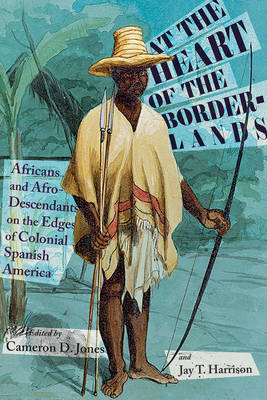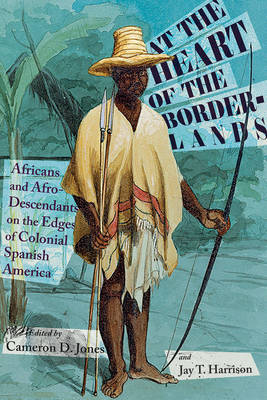
- Afhalen na 1 uur in een winkel met voorraad
- Gratis thuislevering in België vanaf € 30
- Ruim aanbod met 7 miljoen producten
- Afhalen na 1 uur in een winkel met voorraad
- Gratis thuislevering in België vanaf € 30
- Ruim aanbod met 7 miljoen producten
Zoeken
At the Heart of the Borderlands
Africans and Afro-Descendants on the Edges of Colonial Spanish America
€ 50,95
+ 101 punten
Omschrijving
At the Heart of the Borderlands is the first book-length study of Africans and Afro-descendants in the frontiers of Spanish America. While people of African descent have formed part of most borderlands histories, this study recognizes and explains their critical contribution to the formation of frontier spaces. Lack of imperial control coupled with Spain's desperation for settlers and soldiers in frontier areas facilitated the social mobility of Afro-descendants. This need allowed African descendants to become not just members of borderland societies but leaders of it as well. They were essential actors in helping to shape the limits of the Spanish empire. Africans and Afro-descendants built, opposed, and shaped Spanish hegemony in the borderlands, taking on roles that would have been impossible or difficult in colonial centers due to the socio-racial hierarchy of imperial policies and practices.
Specificaties
Betrokkenen
- Uitgeverij:
Inhoud
- Aantal bladzijden:
- 272
- Taal:
- Engels
- Reeks:
Eigenschappen
- Productcode (EAN):
- 9780826364760
- Verschijningsdatum:
- 21/04/2023
- Uitvoering:
- Paperback
- Formaat:
- Trade paperback (VS)
- Afmetingen:
- 150 mm x 228 mm
- Gewicht:
- 362 g

Alleen bij Standaard Boekhandel
+ 101 punten op je klantenkaart van Standaard Boekhandel
Beoordelingen
We publiceren alleen reviews die voldoen aan de voorwaarden voor reviews. Bekijk onze voorwaarden voor reviews.










